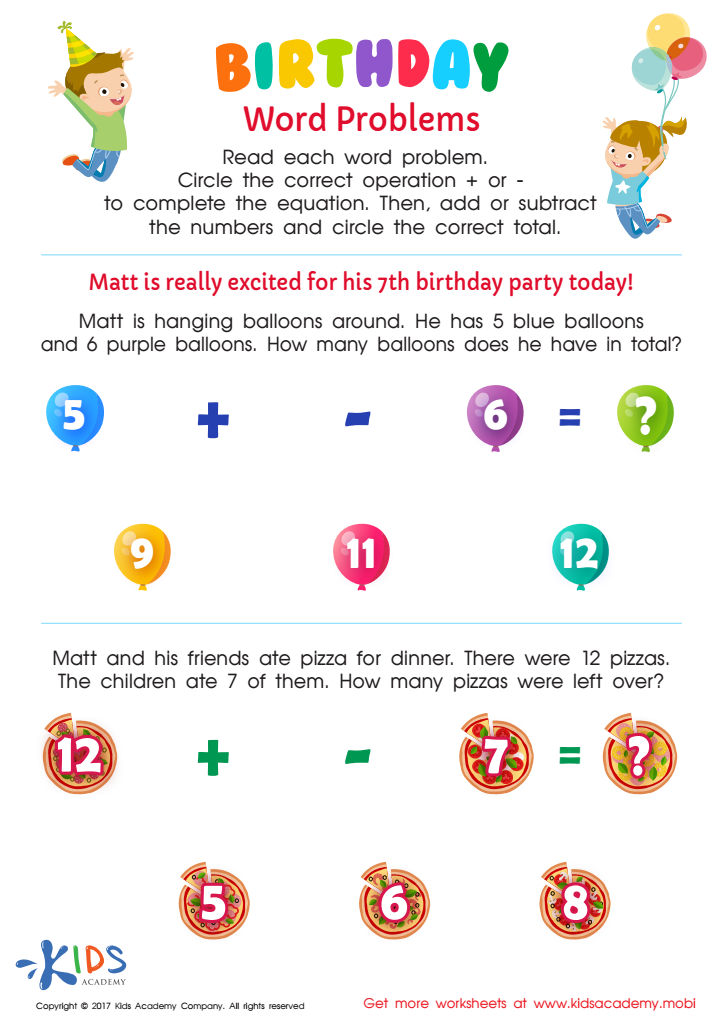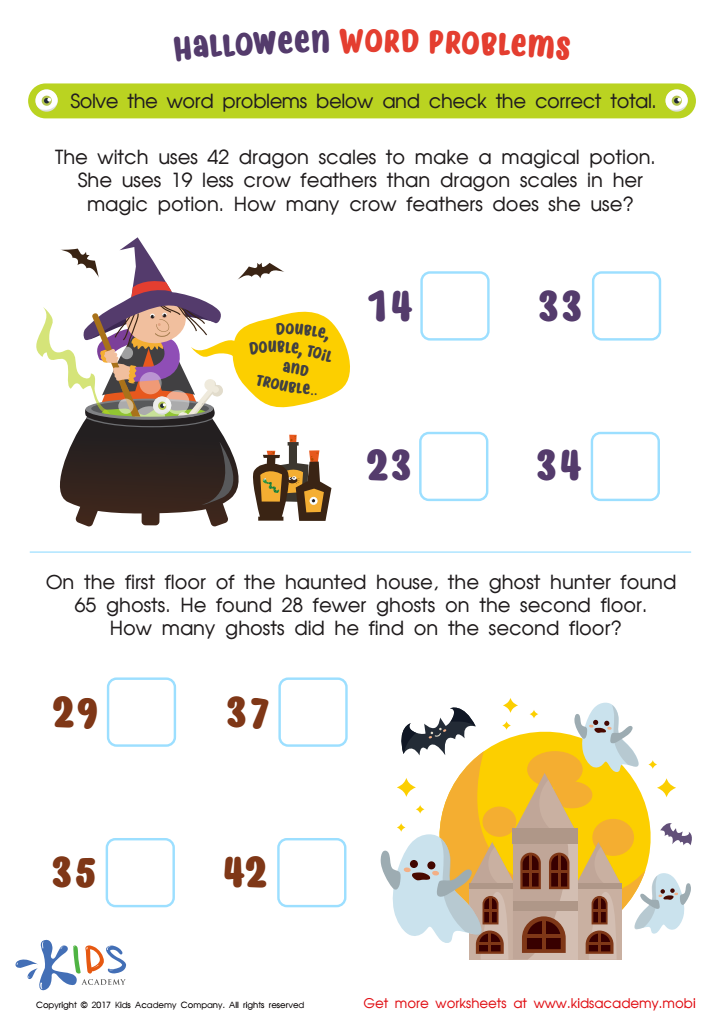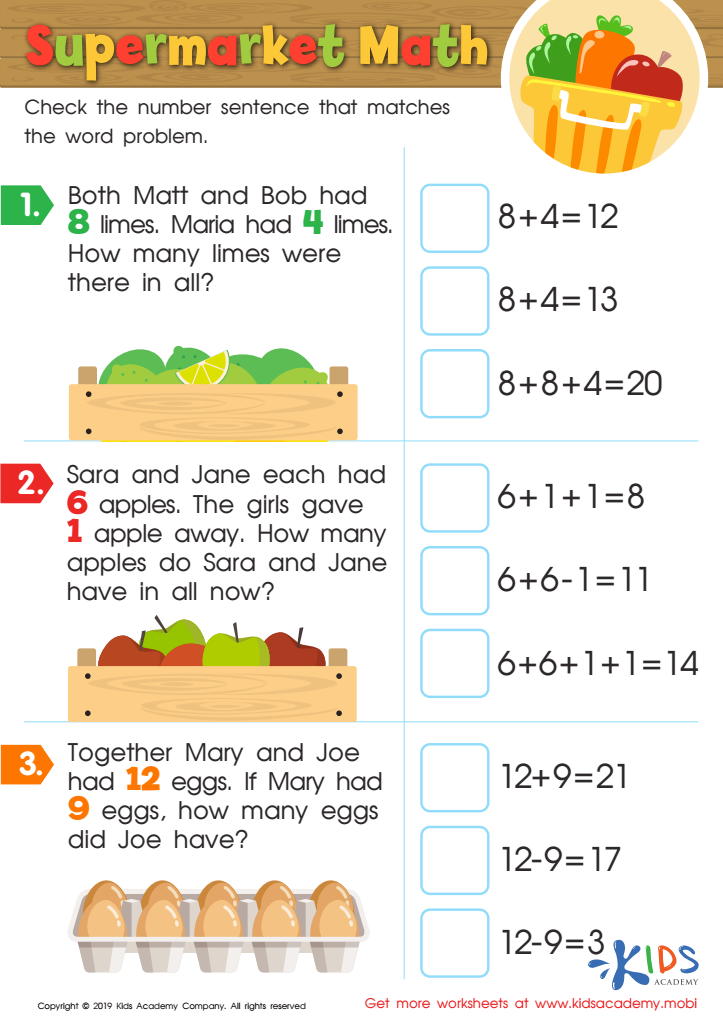Real-life application Word Problems Worksheets for Ages 4-9
3 filtered results
-
From - To
Explore our engaging Real-Life Application Word Problems Worksheets designed specifically for ages 4 to 9. These worksheets help young learners connect math concepts with everyday situations, enhancing their problem-solving skills. Each activity encourages critical thinking as children navigate practical scenarios, from shopping budgets to sharing treats. With a variety of topics and levels, these worksheets cater to various learning styles, ensuring children grasp mathematical principles in a fun and relatable way. Foster a love for math and improve comprehension with our thoughtfully crafted worksheets that promote real-world applications and empower young minds to tackle challenges outside the classroom. Start their learning journey today!


Birthday Word Problems Substraction Worksheet


Halloween Word Problems Printable


Supermarket Math Worksheet
Real-life application word problems are essential for children aged 4-9 for several reasons. Firstly, these engaging problems foster critical thinking and problem-solving skills. By connecting mathematical concepts to everyday scenarios—such as shopping, cooking, or planning a playdate—children learn to apply their knowledge in practical contexts, making math more relatable and meaningful.
Secondly, engaging in real-life word problems promotes language development. Children enhance their comprehension and verbal reasoning by interpreting the wording, identifying key information, and articulating their thought processes. This integration of language and math cultivates a more holistic approach to learning.
Additionally, real-life applications can boost children's motivation and interest in mathematics. When they see how math is relevant to their daily lives, children are more likely to develop a positive attitude towards the subject. This eagerness can lead to a sustained interest in learning.
Moreover, working through these types of problems in collaborative settings—enhanced by parental or teacher support—also helps build social skills. Children can discuss their approaches, share strategies, and learn from each other.
In summary, real-life application word problems are vital for developing critical thinking, language skills, motivation, and social interaction among young learners.
 Assign to My Students
Assign to My Students





.jpg)













